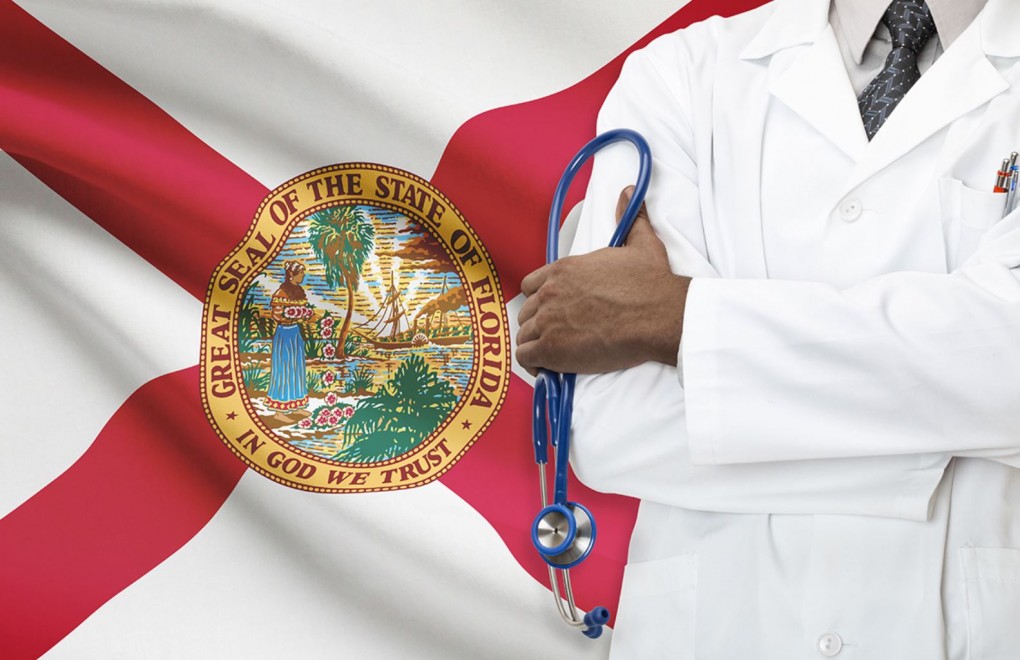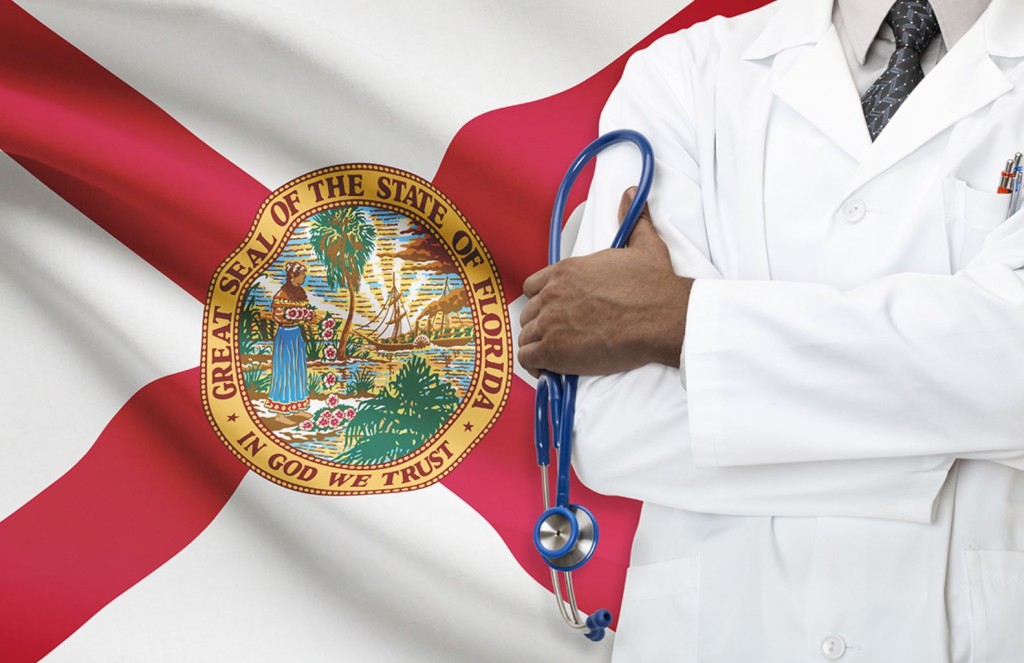New Florida Law Further Expands Healthcare Freedom
TALAHASSEE, Fla. (June 20, 2019) – Earlier this week, Florida Gov. Ron DeSantis signed a bill that expands a law passed last year to help facilitate healthcare freedom outside of government regulatory schemes.
Rep. Wyman Duggan (R-Jacksonville) filed House Bill 7 (H7) on Feb. 14. Last year, Florida enacted a law specifying that direct primary care agreements (sometimes called medical retainer agreements) do not constitute insurance, thereby freeing doctors and patients from the onerous requirements and regulations under the state insurance code. The law also stipulates that a primary care provider, or an agent of a primary care provider, is not required to obtain a certificate of authority or license under the Florida Insurance Code to market, sell, or offer to sell a direct primary care agreement. H7 expands the law to include all licensed healthcare providers, not just primary care physicians.
Widget not in any sidebars
Enactment of H7 opens the door for specialists and other healthcare providers to open practices based on the direct care model.
On May 2, the Senate substituted H7 for a similar Senate bill (SB1520) and then passed it by a 40-0 vote. The House previously approved the measure by a 90-24 vote. With Gov. DeSantis’ signature on June 18, the law will go into effect July 1.
According to Michigan Capitol Confidential, by removing a third party payer from the equation, medical retainer agreements help both physicians and patients minimize costs. Jack Spencer writes:
Under medical retainer agreements, patients make monthly payments to a physician who in return agrees to provide a menu of routine services at no extra charge. Because no insurance company stands between patient and doctor, the hassles and expense of bureaucratic red tape are eliminated, which have resulted in dramatic cost reductions. Routine primary care services (and the bureaucracy required to reimburse them) are estimated to consume 40 cents out of every dollar spent on insurance policies, so lower premiums for a given amount of coverage are another potential benefit.
This represents the kind of cost control Obamacare promised but failed to deliver. In 2015, Tom Woods interviewed a Kansas doctor who utilizes the direct primary care model. Dr. Josh Umbehr’s practice demonstrates the cost savings possible when doctors are unfettered from the bureaucratic health insurance system.
Under Obamacare, regulations define such programs as a primary care service and not a health insurance plan, and current IRS policy treats these monthly fee arrangements just like another health plan.
A SECOND STEP
The passage of H7 illustrates an important strategic point. Passing bills that take a step forward sets the stage, even if they aren’t perfect. Once the door is open, the way is cleared for additional steps. You can’t take the second step before you take the first.
Even while controlling both houses of Congress, the Republicans never did repeal Obamacare. And if they had passed one of their bills, the changes to the ACA proposed by the GOP would have arguably made things worse. Even with the penalty for not buying health insurance repealed by the Republican tax plan, all other Obamacare rules and regulations remain in place. Regardless, state actions can help completely bring down the Affordable Care Act, or any national healthcare plan the Congress comes up with in the future.
Oftentimes, supporters of Obamacare criticize opponents for not having any alternative. Direct health care agreements offer one.
These direct patient/doctor agreements allow a system uncontrolled by government regulations to develop. It makes doctors responsive to patients, not insurance company bureaucrats or government rule-makers. Allowing patients to contract directly with doctors via medical retainer agreements opens the market. Under such agreements, market forces will set price for services based on demand instead of relying on central planners with a political agenda. The end result will be better care delivered at a lower cost.
By incentivizing creative healthcare solutions, the market will naturally provide better options, such as the Surgery Center of Oklahoma, This facility operates completely outside of the insurance system, providing a low-cost alternative for many surgical procedures.
A more open healthcare marketplace within a state will help spur de facto nullification the federal program by providing an affordable alternative. As patients flock to these arrangements and others spurred by ingenuity and market forces, the old system will begin to crumble.
Enactment of H7 takes another step toward healthcare freedom in Florida and creates a stepping stone to further action to nullify the onerous Affordable Care act. With this new law in place, the people of Florida should take further steps to fully extricate themselves from Obamacare for good.
Subscribe to Natural Blaze for health freedom and natural living headlines to your inbox. Follow Natural Blaze on Twitter and Facebook.




